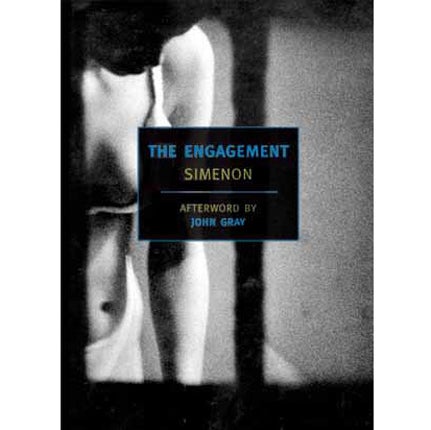The Engagement and other novels, By Georges Simenon
Dark deeds need further investigation

Your support helps us to tell the story
From reproductive rights to climate change to Big Tech, The Independent is on the ground when the story is developing. Whether it's investigating the financials of Elon Musk's pro-Trump PAC or producing our latest documentary, 'The A Word', which shines a light on the American women fighting for reproductive rights, we know how important it is to parse out the facts from the messaging.
At such a critical moment in US history, we need reporters on the ground. Your donation allows us to keep sending journalists to speak to both sides of the story.
The Independent is trusted by Americans across the entire political spectrum. And unlike many other quality news outlets, we choose not to lock Americans out of our reporting and analysis with paywalls. We believe quality journalism should be available to everyone, paid for by those who can afford it.
Your support makes all the difference.Best known for his Inspector Maigret series, the Belgian-born Georges Simenon not only published almost 200 books in an awesomely prolific career. In many novels, he scaled the literary heights of his contemporaries Camus and Gide, and his mentor, Colette. That much I thought I knew.
Yet it took these four reprints to persuade me once and for all that this supreme master of the detective thriller was also one of the great psychological novelists of his century. As well as The Engagement (translated by Anna Moschovakis), the NYRB classics list has reissued Three Bedrooms in Manhattan (trans. Marc Romano & Lawrence G Blochman), Tropic Moon (trans. Marc Romano) and The Widow (trans. John Petrie). All of them, short, fierce, bleak and compellingly written, belong in Simenon's vein of romans durs. And hard novels they are, with pitiless landscapes of hopeless longing, random cruelty and galloping fate warmed only by the twilit lyricism of doomed desire.
In The Engagement from 1933, a small-time Jewish loser on the fringes of Simenon's Paris backstreet life finds himself in the frame when a local prostitute is murdered. In the searingly anti-colonial Tropic Moon, also from the early 1930s, a young French adventurer in Gabon sinks into the moral morass of bad white men (and women) in Africa. Published in 1946, during his American period, Three Bedrooms in Manhattan shows Simenon at his most darkly romantic as a lonely couple drift through seedy hotels and neon-lit streets: a Hopper painting brought to life. And in The Widow, which Andre Gide thought a finer book than Camus's comparable L'Etranger, a volatile vagabond turns up at a farmhouse and, in cold blood, inveigles his way into the affections of abused and bereaved Tati.
These are novels of eye-opening, spine-tingling control and intensity. Their prefaces, by writers such as John Gray and Paul Theroux, forcefully argue the case for Simenon. To spend a Christmas pleasurably sunk in the deepest shades of noir, look no further.
Join our commenting forum
Join thought-provoking conversations, follow other Independent readers and see their replies
Comments